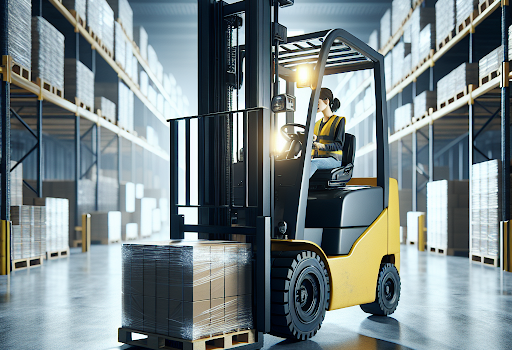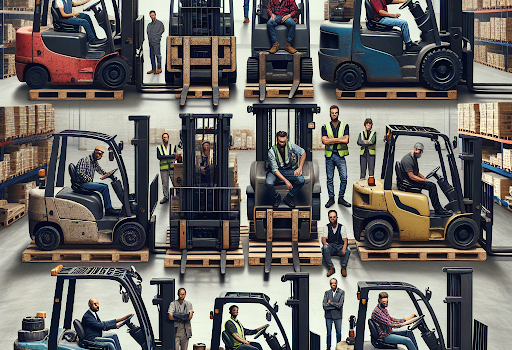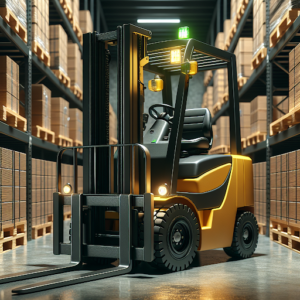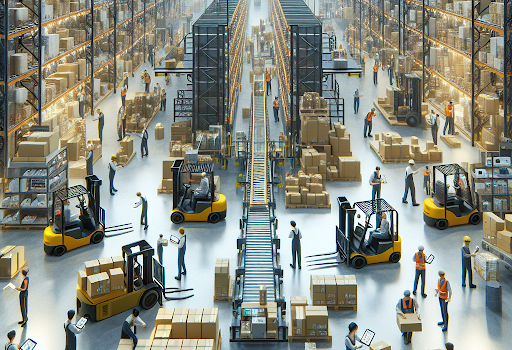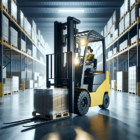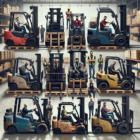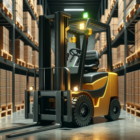Forklift hire Sydney? The Different Types of Forklifts Available for Hire in Sydney
Navigating the world of forklift hire Sydney can be a daunting task. With a myriad of options available, making the right choice is crucial.
This article aims to simplify that process. We’ll explore the different types of forklifts available for hire in Sydney.
Each type of forklift has its unique advantages and specific uses. Understanding these can help you make an informed decision.
Whether you’re a warehouse manager, a construction site supervisor, or an event organizer, this guide is for you. We’ll delve into the specifics of each forklift type, their uses, and benefits.
By the end of this article, you’ll have a clear understanding of which forklift suits your needs best.
Understanding Forklift Hire in Sydney
The Sydney forklift hire and Forklift rental Sydney market in Sydney is diverse and dynamic. It caters to a wide range of industries, from construction and warehousing to retail and events.
Choosing the right forklift for your specific task is crucial. It not only ensures efficiency but also enhances safety in your operations. In the following sections, we’ll explore the different types of forklifts available for hire in Sydney.
Here at Active Forklifts people come to us for:
- Sydney forklift hire
- Forklift hire Sydney
- Forklift rental Sydney
Choosing the Right Forklift for Your Needs
The type of forklift you choose to hire can significantly impact your operations. It’s essential to understand the specific needs of your project before making a decision.
Consider factors such as the load capacity, lift height, and the environment in which the forklift will operate. For instance, a rough terrain forklift is ideal for outdoor construction sites with uneven surfaces, while an electric forklift is best suited for indoor use due to zero emissions.
Here are some key consideration
- Load capacity and lift height
- Indoor or outdoor use
- Type of terrain
- Aisle width in your facility
- Fuel type (electric, diesel, or gas)
Remember, the right forklift can enhance efficiency, ensure safety, and ultimately save you time and money.
Counterbalance Forklifts: The Versatile Choice
Counterbalance forklifts are a popular choice for many businesses in Sydney. They are known for their versatility and ease of operation.
These forklifts are designed with a weight at the rear to balance the load at the front. This design makes them ideal for general-purpose use in warehouses and other industrial settings.
Reach Truck Forklifts: Ideal for Narrow Aisles
Reach truck forklifts are designed for high reach and narrow aisle applications. They are perfect for storage facilities with limited space.
Their unique design allows them to reach high shelves while maintaining a small footprint. This makes them a valuable asset for businesses looking to maximize their storage capacity.
Telescopic Handler Forklifts: Reach New Heights
Telescopic handler forklifts are a common sight on construction sites. They are known for their reach and height capabilities.
These forklifts can handle heavy loads at significant heights, making them ideal for tasks such as roofing or stacking pallets on high shelves.
Electric Forklifts: Clean and Quiet Operation
Electric forklifts are a popular choice for indoor use. They produce zero emissions, making them environmentally friendly and safe for enclosed spaces.
These forklifts also operate quietly, reducing noise pollution in the workplace. This makes them ideal for operations in noise-sensitive areas like residential zones or during night shifts.
Rough Terrain Forklifts: Tackling the Outdoors
Rough terrain forklifts are designed for outdoor use, especially on uneven surfaces. They are commonly used in construction sites and other outdoor environments with challenging terrain.
These forklifts have large, robust tires and a powerful engine, making them capable of handling heavy loads even on slopes and rough ground.
Pallet Jacks: Small but Mighty
Pallet jacks, also known as pallet trucks, are compact and easy to maneuver. They are ideal for light-duty tasks and small spaces, such as retail stores or small warehouses.
Despite their size, pallet jacks can carry substantial loads. They are a cost-effective solution for businesses that need to move goods but don’t require a full-sized forklift.
Forklift Attachments: Enhancing Functionality
Forklift attachments can greatly enhance the functionality of your hired forklift. They allow for more specialized tasks, such as handling drums, bales, or even people.
Choosing the right attachment can make your forklift more versatile and efficient. Always ensure the attachment is compatible with your forklift model and is suitable for your specific task.
Safety and Compliance When Hiring Forklifts
Safety should be your top priority when hiring a forklift. Ensure the forklift has all necessary safety features, such as seat belts, overhead guards, and warning lights.
Compliance with Australian safety standards and regulations is also crucial. Here are some key points to consider:
- The forklift should meet the Australian Standard AS 2359.1.
- The operator must hold a valid High-Risk Work Licence.
- Regular maintenance and safety checks should be performed.
- Proper training should be provided to the operator.
Cost Considerations and Hire Terms
When hiring a forklift, it’s important to understand the total cost. This includes the hire rate, delivery and pickup charges, fuel costs, and any additional fees.
Consider the following to avoid unexpected costs:
- Understand the hire terms and conditions.
- Check if there are any penalties for early return or overuse.
- Ask about the costs of damage or repairs.
- Inquire about long-term hire discounts for ongoing projects.
The Hiring Process: Documentation and Compliance
The process of hiring a forklift in Sydney involves several steps. First, you need to provide necessary documentation, such as a valid driver’s license and proof of insurance.
Next, the rental company will conduct a compliance check. This ensures the forklift meets Australian safety standards and regulations. It’s crucial to hire from a reputable company that adheres to these standards.
Conclusion: Maximizing Efficiency with the Right Forklift Hire
In conclusion, choosing the right forklift for hire in Sydney can significantly enhance your operational efficiency. By understanding your specific needs and considering factors like safety, cost, and compliance, you can make an informed decision that benefits your business.

